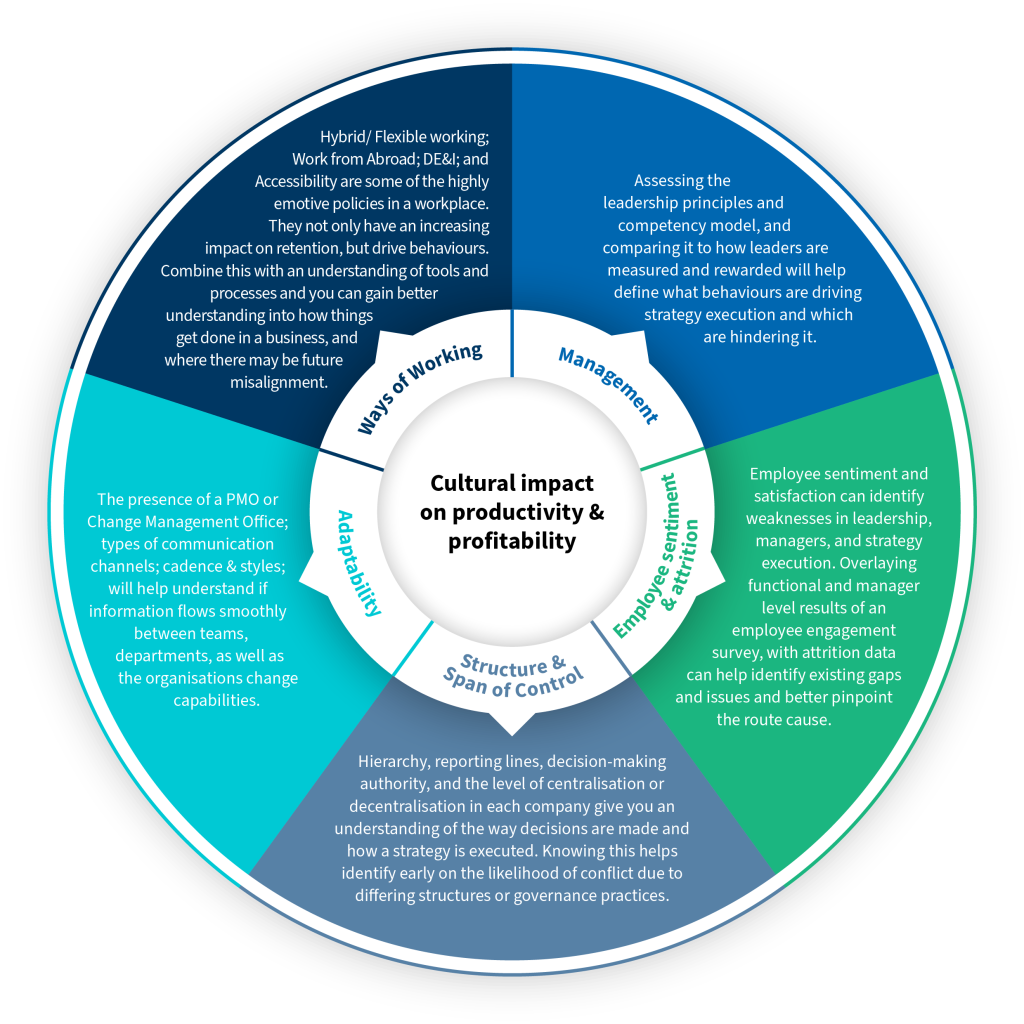Why Due Diligence is more than a numbers game
When deals fail, it’s rarely because someone failed to spot a decimal point was wrong in a spreadsheet. They fail because of a lack of understanding of the culture and the inner workings of the workforce that is being acquired, merged with, or simply being placed into a new ownership structure.
Where money meets opportunity, the importance of M&A due diligence cannot be overstated. Companies rightly invest countless hours, scrutinise years of statements and stress test a wide range of scenarios to ensure that what looks good in theory, can deliver value in reality.
Due diligence is the silent guardian, and meticulous investigator. However, it also needs to become the cultural matchmaker.
What was hoped to be a marriage made in heaven, can quickly become one baking in hell. Picture a tale of two lovers, each from different worlds. Let’s call them Timid Taylor, and Bubbly Blake. They meet, hearts aflutter, and decide to merge their lives. But alas, they failed to account for their wildly differing values and interests, and how they like to do things (and it runs deeper than how they pack the dishwasher). It soon results in lots of broken porcelain and an expensive divorce – far from the rosy future they had envisaged together.
In other cases, some failures could be attributed to the Titanic Syndrome. Where buyers can become intoxicated by the grandeur of their ambitions, overlooking the hidden iceberg lurking beneath the surface – the cultural differences. It’s like the equivalent of those red flags on the second date you choose to ignore.
In the world of M&A, cultural clashes can be a recipe for disaster. Traditionally, and all too often, due diligence is about what looks good on paper, and little consideration is given to assessing whether the businesses will combine effectively. Failing to do this can result in organisational dysfunction at best, and huge value destruction at worse.
It’s no secret that cultural misalignment is a primary cause of M&A failures and unrealised synergies. Gallup reports1 when that mismatch isn’t properly understood or managed, the return on assets tends to decrease by an average annual $200 million in net income three years after the merger.
But what if you could scan the horizon for potential risks, avoid heartbreak, a costly divorce, and set yourself up for happily ever after? And you could do it before you’ve put a ring on it.
Deal makers need to spend more time understanding and mitigating human capital pain points way earlier in the deal process if they want a smooth transition to a blissful union. During the diligence phase, we assess aspects of culture which impact productivity and profitability. And there’s a lot more you can find out than you may think.

Depending on the target there will be varying data available across each aspect. However, the sum of its parts is where the most interesting and valuable understanding of the cultural landscape can be analysed and understood. Ultimately, it means leaders can understand and actively manage the potential synergies, tensions, and opportunities between the two companies and accelerate next-stage planning.
And I’d say that’s a pretty good head start, because successful M&A is not as simple as financial gains or competitive advantage. It is about the integration of people, values, cultures, and ways of working to create a harmonious symphony; a long marriage; and hopefully, the birth of the value proposition so welcomed by shareholders when the deal was first announced.
Source:
1https://www.gallup.com/workplace/353885/organizational-culture-part-due-diligence.aspx
The views expressed in this article are those of the author(s) and not necessarily the views of FTI Consulting, its management, its subsidiaries, its affiliates, or its other professionals.
©2023 FTI Consulting, Inc. All rights reserved. www.fticonsulting.com



